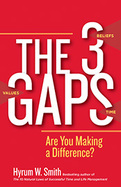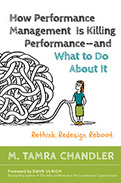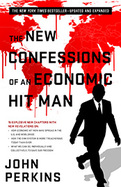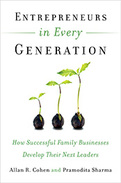Search Results: ""
Results 781-786 of 1358
Out of Many, One
In this era of poisonous partisanship, The Reunited States of America is a lifesaving antidote. At a time when loyalty to party seems to be overpowering love of country, it not only explains how we can bridge the partisan divide but also tells the untold story of how our fellow citizens already are doing it.
This book, a manifesto for a movement to reunite America, will help us put a stop to the seemingly endless Left-Right fistfight while honoring the vital role of healthy political debate. Mark Gerzon describes how citizens all over the country—Republicans, Democrats, and independents—are finding common ground on some of the most divisive and difficult issues we face today.
In this era of poisonous partisanship, The Reunited States of America is a lifesaving antidote. At a time when loyalty to party seems to be overpowering love of country, it not only explains how we can bridge the partisan divide but also tells the untold story of how our fellow citizens already are doing it.
This book, a manifesto for a movement to reunite America, will help us put a stop to the seemingly endless Left-Right fistfight while honoring the vital role of healthy political debate. Mark Gerzon describes how citizens all over the country—Republicans, Democrats, and independents—are finding common ground on some of the most divisive and difficult issues we face today.
The 3 Gaps
2015
For a Better Life, Close the Gaps!
We all want to make a difference. But just as you need to put on your own oxygen mask before helping other passengers on an airplane, getting your own life together is the first step to making a positive impact in the world. Franklin Covey cofounder Hyrum Smith shows that what stops us are gaps between where we are and where we want to be. The first is the Beliefs Gap, between what we believe to be true and what is actually true. The second is the Values Gap, between what we value most in life and what we actually spend our life doing. The third is the Time Gap, between what we plan to do each day and what we actually get done.
Smith offers a practical blueprint that we all can use to recognize and close each of these three gaps and illustrates how it can be done through inspiring true stories. The 3 Gaps provides the concepts and the tools needed to establish a solid foundation from which you can help make the world a better place.
We all want to make a difference. But just as you need to put on your own oxygen mask before helping other passengers on an airplane, getting your own life together is the first step to making a positive impact in the world. Franklin Covey cofounder Hyrum Smith shows that what stops us are gaps between where we are and where we want to be. The first is the Beliefs Gap, between what we believe to be true and what is actually true. The second is the Values Gap, between what we value most in life and what we actually spend our life doing. The third is the Time Gap, between what we plan to do each day and what we actually get done.
Smith offers a practical blueprint that we all can use to recognize and close each of these three gaps and illustrates how it can be done through inspiring true stories. The 3 Gaps provides the concepts and the tools needed to establish a solid foundation from which you can help make the world a better place.
Rethink, Redesign, Reboot.
Most people associate performance management with the annual review, which is universally dreaded by employees, management, and HR professionals alike. It's a cookie-cutter, fear-based, top-down approach that emphasizes negatives over positives and stifles healthy career conversations. It's never been shown to motivate anyone to do anything but try to avoid it, but nobody feels like they have any alternative. Tamra Chandler has one—and it works.
Actually, Chandler doesn't offer a single alternative—she offers an infinite number of them. Each organization that uses her Performance Management Reboot is able to develop its own unique version since it doesn't make a lot of sense for organizations with different cultures, in different industries and sectors, to do things exactly the same way. Grounded in the latest scientific findings about motivation, it's a transparent, employee-driven process that values collaboration over competition and rewards people for acquiring new skills and increasing their contribution instead of hitting arbitrary benchmarks.
Chandler lays out the general principles and then walks you through each step in creating a performance management process that employees will actually embrace rather than avoid and that will help you meet the three objectives of great performance management: developing your people, rewarding them equitably, and driving your organization's performance. It's the first comprehensive, step-by-step guide to creating a performance management solution that's tailored to your organization's needs and goals and that places the emphasis squarely on your greatest asset: your people.
Most people associate performance management with the annual review, which is universally dreaded by employees, management, and HR professionals alike. It's a cookie-cutter, fear-based, top-down approach that emphasizes negatives over positives and stifles healthy career conversations. It's never been shown to motivate anyone to do anything but try to avoid it, but nobody feels like they have any alternative. Tamra Chandler has one—and it works.
Actually, Chandler doesn't offer a single alternative—she offers an infinite number of them. Each organization that uses her Performance Management Reboot is able to develop its own unique version since it doesn't make a lot of sense for organizations with different cultures, in different industries and sectors, to do things exactly the same way. Grounded in the latest scientific findings about motivation, it's a transparent, employee-driven process that values collaboration over competition and rewards people for acquiring new skills and increasing their contribution instead of hitting arbitrary benchmarks.
Chandler lays out the general principles and then walks you through each step in creating a performance management process that employees will actually embrace rather than avoid and that will help you meet the three objectives of great performance management: developing your people, rewarding them equitably, and driving your organization's performance. It's the first comprehensive, step-by-step guide to creating a performance management solution that's tailored to your organization's needs and goals and that places the emphasis squarely on your greatest asset: your people.
Featuring 15 explosive new chapters, this new edition of the New York Times bestseller brings the story of Economic Hit Men up-to-date and, chillingly, home to the U.S.―but it also gives us hope and the tools to fight back.Featuring 15 explosive new chapters, this new edition of the New York Times bestseller brings the story of Economic Hit Men up-to-date and, chillingly, home to the U.S.―but it also gives us hope and the tools to fight back.
The previous edition of this now-classic book revealed the existence and subversive manipulations of "economic hit men. John Perkins wrote that they are highly paid professionals who cheat countries around the globe out of trillions of dollars. Their tools include fraudulent financial reports, rigged elections, payoffs, extortion, sex, and murder. In Perkins's case the tool was debt-convincing strategically important countries to borrow huge amounts of money for enormous, development projects that served the very rich while driving the country deeper into poverty and debt. And once indebted, these countries could be controlled.
In this latest edition, Perkins provides revealing new details about how he and others did their work. But more importantly, in an explosive new section he describes how the EHM tools are being used around the world more widely than ever-even in the U. S. itself. The cancer has metastasized, yet most people still aren't aware of it. Fear and debt drive the EHM system. We are hammered with messages that terrify us into believing that we must pay any price, assume any debt, to stop the enemies who, we are told, lurk at our doorsteps. The EHM system-employing false economics, bribes, surveillance, deception, debt, coups, assassinations, unbridled military power-has become the dominant system of economics, government, and society today. It has created what Perkins calls a Death Economy. But Perkins offers hope: he concludes with dozens of specific, concrete suggestions for actions all of us can take to wrest control of our world away from the economic hit men, and help give birth to a Life Economy.
The previous edition of this now-classic book revealed the existence and subversive manipulations of "economic hit men. John Perkins wrote that they are highly paid professionals who cheat countries around the globe out of trillions of dollars. Their tools include fraudulent financial reports, rigged elections, payoffs, extortion, sex, and murder. In Perkins's case the tool was debt-convincing strategically important countries to borrow huge amounts of money for enormous, development projects that served the very rich while driving the country deeper into poverty and debt. And once indebted, these countries could be controlled.
In this latest edition, Perkins provides revealing new details about how he and others did their work. But more importantly, in an explosive new section he describes how the EHM tools are being used around the world more widely than ever-even in the U. S. itself. The cancer has metastasized, yet most people still aren't aware of it. Fear and debt drive the EHM system. We are hammered with messages that terrify us into believing that we must pay any price, assume any debt, to stop the enemies who, we are told, lurk at our doorsteps. The EHM system-employing false economics, bribes, surveillance, deception, debt, coups, assassinations, unbridled military power-has become the dominant system of economics, government, and society today. It has created what Perkins calls a Death Economy. But Perkins offers hope: he concludes with dozens of specific, concrete suggestions for actions all of us can take to wrest control of our world away from the economic hit men, and help give birth to a Life Economy.
Discover What Makes Family Businesses Beat the Odds and Thrive over Generations
Families are complicated; family businesses even more so. Like other companies, family-run enterprises must develop leadership and entrepreneurial skills. But they must also manage family dynamics that rarely mirror the best practices in the latest Harvard Business Review.
Allan Cohen and Pramodita Sharma, scholars with deep professional and personal roots in family businesses, show how enterprising families can transmit the hunger for excellence across generations. Using examples of firms that flourished and those that failed, they describe the practices that characterize entrepreneurial individuals, families, and organizations and offer pragmatic advice that can be tailored to your unique situation.
Families are complicated; family businesses even more so. Like other companies, family-run enterprises must develop leadership and entrepreneurial skills. But they must also manage family dynamics that rarely mirror the best practices in the latest Harvard Business Review.
Allan Cohen and Pramodita Sharma, scholars with deep professional and personal roots in family businesses, show how enterprising families can transmit the hunger for excellence across generations. Using examples of firms that flourished and those that failed, they describe the practices that characterize entrepreneurial individuals, families, and organizations and offer pragmatic advice that can be tailored to your unique situation.
It may be hard to believe in an era of Walmart, Citizens United, and the Koch brothers, but corporations are on the decline. The number of American companies listed on the stock market dropped by half between 1996 and 2012. In recent years we've seen some of the most storied corporations go bankrupt (General Motors, Chrysler, Eastman Kodak) or disappear entirely (Bethlehem Steel, Lehman Brothers, Borders).
Gerald Davis argues this is a root cause of the income inequality and social instability we face today. Corporations were once an integral part of building the middle class. He points out that in their heyday they offered millions of people lifetime employment, a stable career path, health insurance, and retirement pensions. They were like small private welfare states.
The businesses that are replacing them will not fill the same role. For one thing, they employ far fewer people—the combined global workforces of Facebook, Yelp, Zynga, LinkedIn, Zillow, Tableau, Zulily, and Box are smaller than the number of people who lost their jobs when Circuit City was liquidated in 2009. And in the “sharing economy,” companies have no obligation to most of the people who work for them—at the end of 2014 Uber had over 160,000 “driver-partners” in the United States but recognized only about 2,000 people as actual employees.
Davis tracks the rise of the large American corporation and the economic, social, and technological developments that have led to its decline. The future could see either increasing economic polarization, as careers turn into jobs and jobs turn into tasks, or a more democratic economy built from the grass roots. It's up to us.
Gerald Davis argues this is a root cause of the income inequality and social instability we face today. Corporations were once an integral part of building the middle class. He points out that in their heyday they offered millions of people lifetime employment, a stable career path, health insurance, and retirement pensions. They were like small private welfare states.
The businesses that are replacing them will not fill the same role. For one thing, they employ far fewer people—the combined global workforces of Facebook, Yelp, Zynga, LinkedIn, Zillow, Tableau, Zulily, and Box are smaller than the number of people who lost their jobs when Circuit City was liquidated in 2009. And in the “sharing economy,” companies have no obligation to most of the people who work for them—at the end of 2014 Uber had over 160,000 “driver-partners” in the United States but recognized only about 2,000 people as actual employees.
Davis tracks the rise of the large American corporation and the economic, social, and technological developments that have led to its decline. The future could see either increasing economic polarization, as careers turn into jobs and jobs turn into tasks, or a more democratic economy built from the grass roots. It's up to us.





















